46 items found: Search results for "continuous" in all categories x
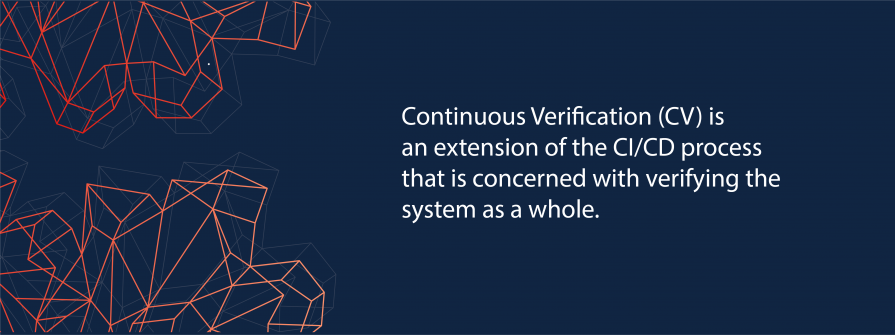
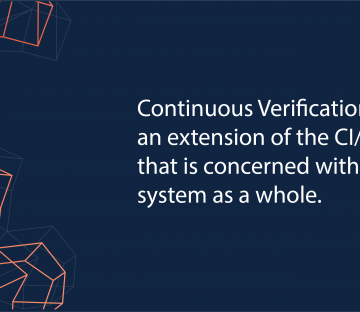
October 15, 2020
Continuous Verification is a term that is starting to pop up from time-to-time… but what does it mean? Well… according to Nora Jones and Casey Rosenthal, authors of O’Reilly’s Chaos Engineering books,
“Continuous verification (CV) is a discipline of proactive experimentation, implemented as tooling that verifies system behaviors. This stands in contrast to prior common practices in software quality assurance, which favor reactive testing, implemented as methodologies that validate known properties of software. This isn’t to say that prior common practices are invalid or should be deprecated. Alerting, testing, code reviews, monitoring, SRE practices, and the like—these are all great practices and should be encouraged”
Over the course of this post, we will unpack this statement: to understand what is behind it and what it might mean for your development process.


February 14, 2018 | Cloud
AWS Announced a few new products for use with containers at RE:Invent 2017 and of particular interest to me was a new Elastic Container Service(ECS) Launch type, called Fargate
Prior to Fargate, when it came to creating a continuous delivery pipeline in AWS, the use of containers through ECS in its standard form, was the closest you could get to an always up, hands off, managed style of setup. Traditionally ECS has allowed you to create a configured pool of “worker” instances, with it then acting as a scheduler, provisioning containers on those instances.


January 7, 2013 | Software Consultancy
The practice of continuous integration in which build servers are used to build and perform testing of code is now widespread and mainstream.
While not all teams have adopted continuous integration effectively, its increasing adoption has led many to start to look for additional opportunities to improve the cost, quality and speed of delivery with which software targeted to meet business needs can be released into production environments.
Traditionally Continuous Integration addresses the question of “does the software build and pass our unit and integration test suites?”. This is often insufficient.
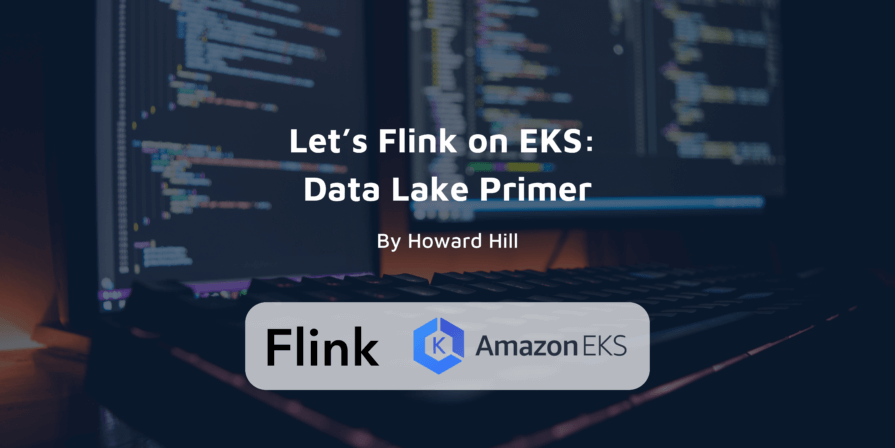

November 22, 2023 | Blog, Data Analysis
Check out the latest blog by Our Senior Consultant Howard Hill where he offers an engineer’s guide to streamlining real-time data using an open-model infrastructure.
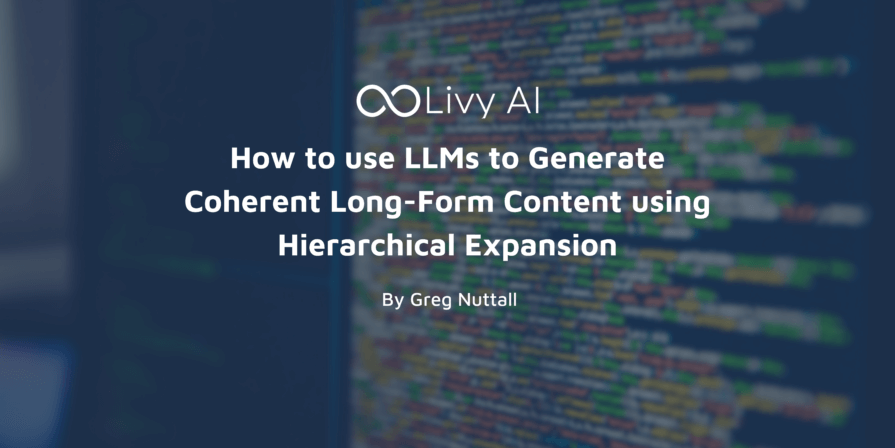

October 30, 2023 | Blog
As impressive as they are, Large Language Models (LLMs) face difficulties when creating long-form content, primarily due to token limitations and inconsistencies in the output over time.
Together with Livy.ai, we developed a “Hierarchical Expansion” method to address these challenges and better the quality, flow, and structure of the content produced. Read further to learn more!
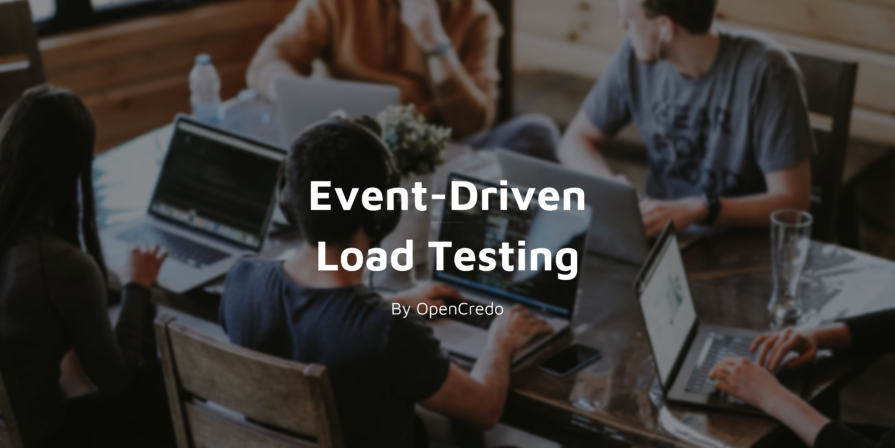
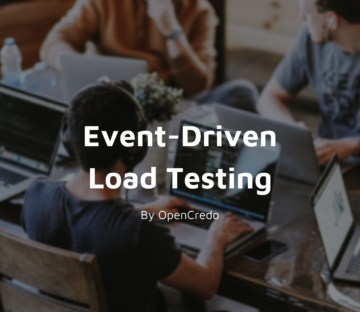
October 12, 2023 | Blog, Platform Engineering
Check out our latest blog “Event Driven Load Testing” which explores how, through some smart automation techniques, testing strategies can be adapted to support scale-up organisations where there are potentially many disparate teams needing to work together.

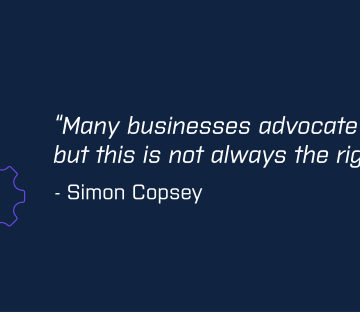
June 14, 2022 | Blog, Culture, White Paper
Many businesses advocate for efficiency, but this is not always the right goal. Part one of this article explores how product teams can balance two important considerations – efficiency and effectiveness. Part two builds on this idea, uncovering the non-obvious implications of using technology to bring about efficiency and wider change.


June 1, 2022 | Open Source, Software Consultancy
Watch the talk ‘The Zen School of Github Actions’ by our Lead Consultant, Jonathan Ruckwood from Devoxx UK 2022

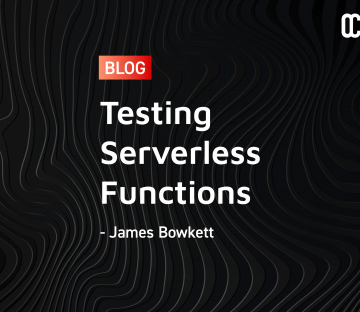
February 11, 2022 | AWS, Cloud, GCP, Kubernetes, Microservices, Open Source, Software Consultancy
Serverless functions are easy to install and upload, but we can’t ignore the basics. This article looks at different strategies related to testing serverless functions.

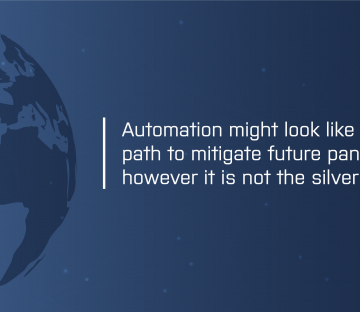
At the time of this post, the UK is making steps to exit from an unprecedented lockdown measures for the Coronavirus. Much of the UK workforce are still making efforts to work-from-home with mainly key workers operating – at risk – in public. Many industries have shut down completely. Consequently, many businesses are reflecting on what happens next and how do we better mitigate future pandemic events?
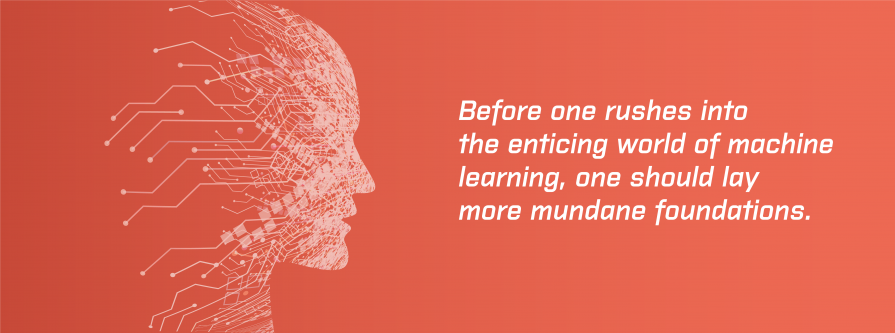
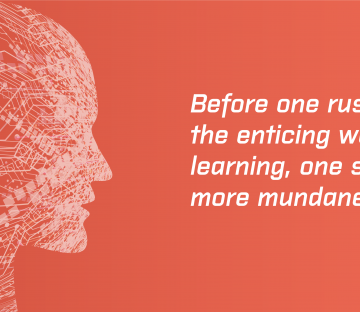
April 2, 2020 | Machine Learning
Recent years have seen many companies consolidate all their data into a data lake/warehouse of some sort. Once it’s all consolidated, what next?
Many companies consolidate data with a field of dreams mindset – “build it and they will come”, however a comprehensive data strategy is needed if the ultimate goals of an organisation are to be realised: monetisation through Machine Learning and AI is an oft-cited goal. Unfortunately, before one rushes into the enticing world of machine learning, one should lay more mundane foundations. Indeed, in data science, estimates vary between 50% to 80% of the time taken is devoted to so-called data-wrangling. Further, Google estimates ML projects produce 5% ML code and 95% “glue code”. If this is the reality we face, what foundations are required before one can dive headlong into ML?


March 20, 2020
Traditionally, Usability and Security have been set in opposition to each other: with tight security, we end up with painful user experience. In this blog, Guy focuses on financial services as an exemplar of how we can introduce usability into a vertical with challenging security and compliance requirements.


October 3, 2019
Continuing on from Stuart’s previous blog which covered highlights from CloudNative London conference day 1, I have put together a summary for day 2.
Being an OCer (OpenCredo employee) has given me the opportunity to fully embed myself in the London technology scene. Alongside our direct engagements with clients, it is a chance to understand and evaluate the trends and lessons that have emerged over the past year.
For conferences and technical content, London is a very crowded location. Every day it seems like a new conference is being announced and I know I cannot attend them all, no matter how much I want too! Alongside some of my other colleagues, I was given the option to attend the Skillsmatter CloudNative London conference and with the increase of organisations embracing the dynamic and transformative benefits offered by an ever-growing choice of cloud providers, it seemed like a good fit.


September 12, 2019 | Cloud Native, Microservices, Software Consultancy
As a technology leader, you’ll be aware that competitive pressures and shifting business requirements are driving changes in the technical architectures of many organisations. This means you need a new strategic approach based on the ability to continually evolve elements of your systems and architectures.


July 31, 2018 | Machine Learning
Machine Learning, alongside a mature Data Science, will help to bring IT and business closer together. By leveraging data for actionable insights, IT will increasingly drive business value. Agile and DevOps practices enable the continuous delivery of business value through productionised machine learning models and software delivery.


May 31, 2018 | DevOps
As traditional operations has embraced the concept of code, it has benefited from ideas already prevalent in developer circles such as version control. Version control brings the benefit that not only can you see what the infrastructure was, but you can also get reviews of changes by your peers before the change is made live; known to most developers as Pull Request (PR) reviews.




May 16, 2018 | Microservices
To identify service boundaries, it is not enough to consider (business) domains only. Other forces like organisational communication structures, and – very important – time, strongly suggest that we should include several other criteria in our considerations.


April 18, 2018 | Microservices
Quite a few of the anti-patterns we observe today on microservices projects are strongly related to how people approach the problem. Given their nature, these anti-patterns tend to be deeply ingrained and self-sustaining. Addressing them starts with increased awareness and by changing ways of approaching the problem, rather than by the introduction of yet another technical tool or framework.


January 23, 2018 | Data Engineering, DevOps
Machine Learning is a hot topic these days, as can be seen from search trends. It was the success of Deepmind and AlphaGo in 2016 that really brought machine learning to the attention of the wider community and the world at large.


February 13, 2017 | Data Engineering
One of the stated intentions behind the design of Java 8’s Streams API was to take better advantage of the multi-core processing power of modern computers. Operations that could be performed on a single, linear stream of values could also be run in parallel by splitting that stream into multiple sub-streams, and combining the results from processing each sub-stream as they became available.


January 13, 2017 | Publications
In this Ebook, you will find detailed step-by-step instructions on how to containerize your Java apps, fit them into CD pipelines, and monitor them in production. By the end of the report, you will be on your way to deploying containerized Java apps to production.


June 7, 2016 | Software Consultancy
In my previous blog post I explained to you the Seven Deadly Sins of Project Managers. With that post in mind, I would like to share with you my views on what a project manager needs to overcome these sins and become a valuable member of the team, and ultimately helping to achieve success on the project.


April 5, 2016 | Software Consultancy
This post is part of a series which introduce key concepts in successful test automation. Each post contains sample code using the test-automation-quickstart project, a sample Java test automation framework available from Github.


March 14, 2016 | Software Consultancy
Test automation provides fast feedback on regressions. In order to achieve this tests need to execute quickly, something which becomes more of a problem as test suites grow. This is especially true of tests which exercise a user interface where the interaction with the system is slower.
A good way to address this is to have your tests execute in parallel rather than consecutively. Given sufficient resources this allows your execution time to remain low almost indefinitely as more scenarios are added to the suite.


March 2, 2016 | DevOps, Microservices
Many of our clients are currently implementing applications using a ‘microservice’-based architecture. Increasingly we are hearing from organisations that are part way through a migration to microservices, and they want our help with validating and improving their current solution. These ‘microservices checkup’ projects have revealed some interesting patterns, and because we have experience of working in a wide-range of industries (and also have ‘fresh eyes’ when looking at a project), we are often able to work alongside teams to make significant improvements and create a strategic roadmap for future improvements.


March 2, 2016 | Microservices
Microservice-style software architectures have many benefits: loose coupling, independent scalability, localised failures, facilitating the usage of polyglot data persistence tools or multiple programming languages.
However, they also introduce other challenges. A major one is the fact that the end-user functionality of the system will ultimately emerge as a composition of multiple services. This significantly increases the complexity of deploying the system. In addition, because we lose the concept of “versions” of the system, it becomes harder to answer questions like “what capabilities are in production?” and “when is a new feature considered ‘done’?”.


December 16, 2015 | Cloud, DevOps
In the rush to embrace DevOps, many organisations seek out tools to help them achieve DevOps nirvana; the magical tools that will unify Development and Operations, stop the infighting, and ensure collaboration. This search for tools to solve problems exists in many domains, but seems particularly prevalent in IT (it may be real, or a reflection of my exposure to IT). The temptation to embrace new tools as a panacea is high, because the problems in IT seem so pervasive and persistent.




November 3, 2015 | Software Consultancy
My JavaOne experience was rather busy this year, what with three talks presented in a single day! The first of these talks “Debugging Java Apps in Containers: No Heavy Welding Gear Required” was delivered with my regular co-presenter Steve Poole, from IBM, and we shared our combined experiences of working with Java and Docker over the past year.


October 31, 2015 | Microservices
Over the past few weeks I’ve been writing an OpenCredo blog series on the topic of “Building a Microservice Development Ecosystem”, but my JavaOne talk of the same title crept up on me before I managed to finish the remaining posts. I’m still planning to finish the full blog series, but in the meantime I thought it would be beneficial to share the video and slides associated with the talk, alongside some of my related thinking. I’ve been fortunate to work on several interesting microservice projects at OpenCredo, and we’re always keen to share our knowledge or offer advice, and so please do get in touch if we can help you or your organisation.


October 18, 2015 | Cloud, DevOps
Last week Steve Poole and I were once again back at the always informative JAX London conference talking about DevOps and the Cloud. This presentation built upon our previous DevOps talk that was presented last year, and focused on the experiences that Steve and I had encountered over the last year (the slides for our 2014 “Moving to a DevOps” mode talk can be found on SlideShare, and the video on Parleys).


October 12, 2015 | DevOps
DevOps is transformative. This (hopefully) won’t be true forever, but it is for now. While the modern management practices of separating development and operations (and to a lesser extent, everyone else) prevail, the tearing down of the walls that separate them will remain transformative. In company after company, management and front-line staff are coming to realise that keeping functions separate, which are inherently interdependent, is a model for blame, shifted responsibility, and acrimony. It’s easy to divvy-up a company up based on function. To many people, it seems the most logical way to do it. Ops does operations, Dev does development, Marketing markets, etc. It seems much harder to do it any other way. So why do it?


![Microservice Platforms: Some Assembly [Still] Required. Part One](https://opencredo.com/wp-content/uploads/2018/10/banner-vanancies-895x196.jpg)
![Microservice Platforms: Some Assembly [Still] Required. Part One](https://opencredo.com/wp-content/uploads/2018/10/banner-vanancies-360x312.jpg)
August 26, 2015 | Cloud
Unless you’ve been living under a rock for the last year, you’ll undoubtedly know that microservices are the new hotness. An emerging trend that I’ve observed is that the people who are actually using microservices in production tend to be the larger well-funded companies, such as Netflix, Gilt, Yelp, Hailo etc., and each organisation has their own way of developing, building and deploying.


August 5, 2015 | Cloud, GCP, Kubernetes
Why OpenCredo partnered with Google
Recently OpenCredo chose to partner with Google in order to share knowledge and resources around the Google Cloud Platform offerings. Our clients come in many shapes and sizes, but typically all of them realise three disruptive truths of the modern IT industry: the (economic) value of cloud; the competitive advantage of continuous delivery; and the potential of hypothesis and data-driven product development to increase innovation (as popularised by the Lean Startup / Lean Enterprise motto of ‘build, measure, learn’).








March 11, 2015 | Microservices
 One of the pain points experienced with developing microservices is that it often proves too cumbersome to replicate an environment for local development. This usually means the first time an application talks to its “real” dependencies is when it gets deployed to a shared testing environment. A relatively laborious continuous integration process usually precedes this deployment, making our feedback cycle longer than we would like. In this post I describe a workflow that aims to improve that, using Docker and Docker Compose (formerly known as fig).
One of the pain points experienced with developing microservices is that it often proves too cumbersome to replicate an environment for local development. This usually means the first time an application talks to its “real” dependencies is when it gets deployed to a shared testing environment. A relatively laborious continuous integration process usually precedes this deployment, making our feedback cycle longer than we would like. In this post I describe a workflow that aims to improve that, using Docker and Docker Compose (formerly known as fig).
November 19, 2014 | Microservices
Undeniably, there is a growing interest in microservices as we see more organisations, big and small, evaluating and implementing this emerging approach. Despite its apparent novelty, most concepts and principles underpinning microservices are not exactly new – they are simply proven and commonsense software development practices that now need to be applied holistically and at a wider scale, rather than at the scale of a single program or machine. These principles include separation of concerns, loose coupling, scalability and fault-tolerance.




January 10, 2013 | DevOps
Recently I have started looking into SaltStack as a solution that does both config management and orchestration. It is a relatively new project started in 2011, but it has a growing fanbase among Sys Admins and DevOps Engineers. In this blog post I will look into Salt as a promising alternative, and comparing it to Puppet as a way of exploring its basic set of features.


December 18, 2012 | Software Consultancy
The first thing most people think of when they start a project with the good intentions of test driven development is: write a test first. That’s great, and something I would fully encourage. However, diving in to writing tests without forethought, especially on large projects with a lot of developers can lead to new problems that TDD is not going to solve. With some upfront thinking (but not big upfront design!) a large team can avoid problems later down the line by considering some important and desirable traits of a large and rapidly changing test suite.


February 13, 2012 | Software Consultancy
Recently we were approached by a client to do some performance testing of the web application they had written. The budget allowed two days for this task. Ok. No problem. Yes, we can. Naturally I had one or another question though…


February 8, 2012 | Data Analysis, Data Engineering
Most of the important players in this space are large IT corporations like Oracle and IBM with their commercial (read expensive) offerings.
While most of CEP products offer some great features, it’s license model and close code policy doesn’t allow developers to play with them on pet projects, which would drive adoption and usage of CEP in every day programming.